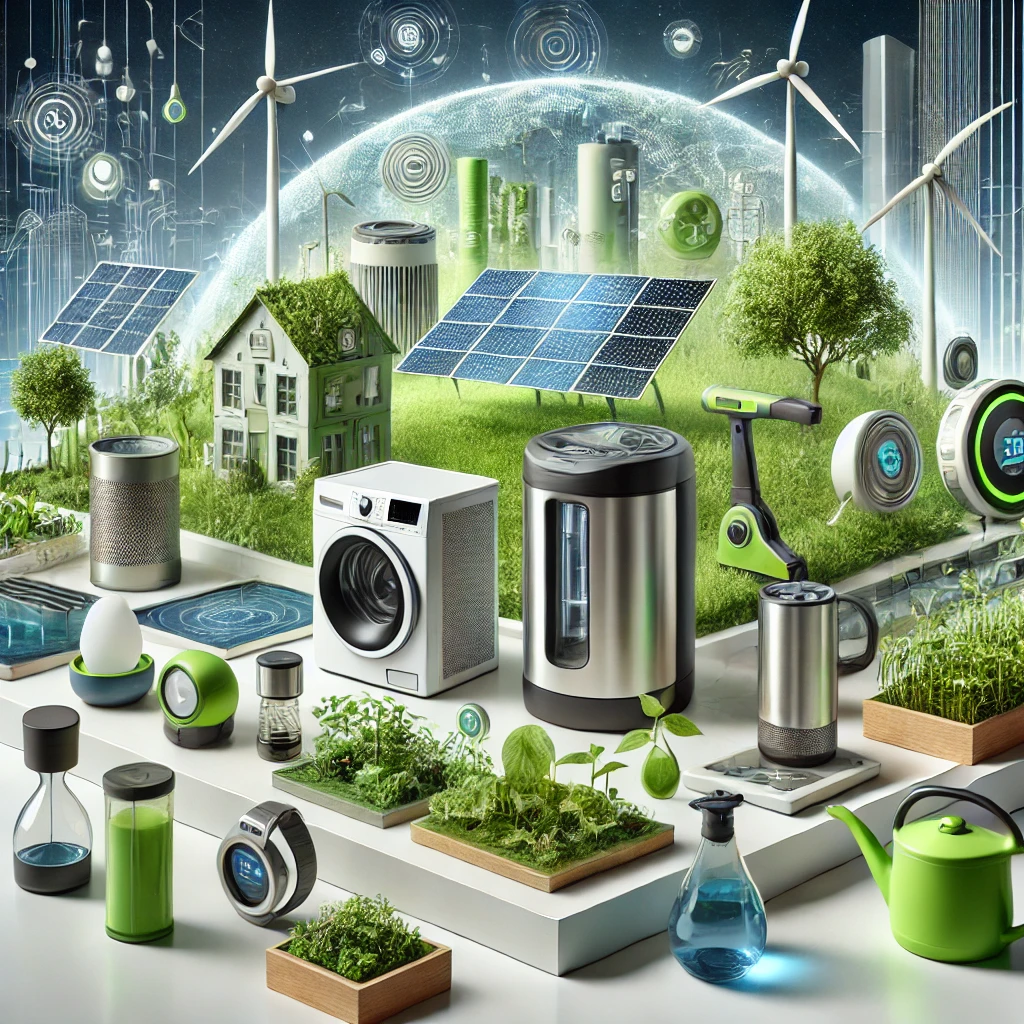
Top Micronitch Devices for a More Sustainable Future
Technology is advancing at an exponential rate, and it’s no surprise that sustainable technologies are becoming a huge part of our everyday lives. From AI innovations to 5G-enabled devices, the future is bright, efficient, and greener. If you’ve ever wondered how technology can simplify your life and help build a more sustainable future, you’re in the right place!
The Latest Innovations in AI and Their Real-Life Applications
AI isn’t just for tech giants anymore; it's infiltrating our daily routines, making life easier and more sustainable. For example, AI tools like personal assistants, automated scheduling apps, and even energy-efficient systems are transforming the way we live. These tools analyze our behaviors, preferences, and needs, optimizing energy usage and cutting down on waste. It’s like having a personal assistant that not only knows what you need but also helps save the planet one task at a time!
AI in Smart Homes: Making Your Life Simpler and Greener
Smart home technologies powered by AI are revolutionizing the way we manage energy at home. Devices like smart thermostats and lighting systems adjust based on your schedule, minimizing energy waste. Imagine your home adjusting the temperature to your preferred setting as soon as you walk in, without any input from you!
Best Smart Home Gadgets to Simplify Your Life
If you’ve been considering diving into smart home technologies, now’s the perfect time. From smart refrigerators to AI-powered vacuum cleaners, the range of gadgets that can make your life easier and more efficient is vast. Let’s look at a few that will not only enhance convenience but also reduce your carbon footprint.
Smart Thermostats
Smart thermostats like the Nest Learning Thermostat or Ecobee SmartThermostat adjust your home’s temperature based on your routine. This not only keeps you comfortable but also reduces energy consumption by preventing heating or cooling when you're not around.
Smart Lighting Systems
Smart lighting systems can be set to turn off when you leave a room, or they can adjust brightness based on the time of day, helping to save electricity. With just a simple voice command or a tap on your phone, you’re in full control.
How IoT is Revolutionizing Industries
The Internet of Things (IoT) is connecting everything from your kitchen appliances to industrial machines, creating smarter systems that can monitor and optimize performance. The IoT revolution is helping industries become more efficient and sustainable, reducing waste and energy consumption.
IoT in Smart Agriculture
Farmers are now using IoT devices to monitor soil moisture, weather conditions, and crop health. This technology allows them to use resources more efficiently, reducing water and pesticide use while increasing yields.
IoT in Manufacturing
IoT devices in manufacturing help track production, monitor machinery health, and reduce downtime. These connected systems allow factories to operate at peak efficiency, saving both energy and resources.
Top 5G-Enabled Devices You Need to Know About
5G is the new frontier in connectivity, providing faster speeds, lower latency, and a better overall experience for connected devices. Here’s a look at some of the top 5G-enabled devices that can make your life easier and more sustainable.
5G-Enabled Smartphones
Smartphones like the iPhone 15 and Samsung Galaxy S23 are packed with 5G technology. With faster download speeds, these devices help save time, which can be used to focus on more meaningful activities while reducing your environmental impact.
5G-Connected Smart Home Devices
With the advent of 5G, your smart home devices will operate faster and more seamlessly. From video streaming to real-time smart home monitoring, 5G enables a smooth and sustainable experience.
Practical Uses of Sustainable Technologies in Everyday Life
We see sustainable technologies everywhere—whether it’s energy-efficient appliances, eco-friendly cars, or smart technologies that optimize resource usage. Let’s look at how these innovations are helping to build a sustainable future.
Electric Vehicles (EVs)
Electric cars are not just the future; they’re the present. With reduced emissions and lower energy consumption, they are a key player in sustainable transportation. Companies like Tesla, Rivian, and Nissan are leading the charge, helping reduce our reliance on fossil fuels.
Solar-Powered Gadgets
Solar-powered chargers, garden lights, and even solar-powered smartwatches are making it possible to use renewable energy to power our daily devices. It’s like having the sun as your own personal energy source!
Conclusion: A Greener Tomorrow with Technology
The devices and technologies discussed above are just the tip of the iceberg when it comes to sustainable innovations. From AI tools to 5G-enabled gadgets and IoT systems, we’re entering an era where technology not only improves our lives but also works to protect the planet. So, whether you’re looking to simplify your daily routine, reduce energy consumption, or just stay on top of the latest trends, these devices are helping shape a brighter, greener future.
FAQs
1. How do AI tools help with sustainability?
AI tools can optimize energy usage, reduce waste, and improve efficiency in various industries, from agriculture to manufacturing to home energy systems.
2. What are the best smart home gadgets to reduce energy consumption?
Smart thermostats, lighting systems, and energy-efficient appliances are some of the best gadgets to help reduce energy consumption in your home.
3. How does IoT benefit the environment?
IoT helps industries monitor and optimize resource usage, reducing waste and improving efficiency in sectors like agriculture, manufacturing, and energy.
4. What makes 5G a game-changer for connectivity?
5G offers faster speeds and lower latency, making connected devices more efficient and allowing for real-time applications that can help save resources.
5. Can sustainable technologies really make a difference in everyday life?
Yes, sustainable technologies like electric vehicles, solar-powered devices, and AI-powered systems are making a significant impact in reducing environmental footprints.